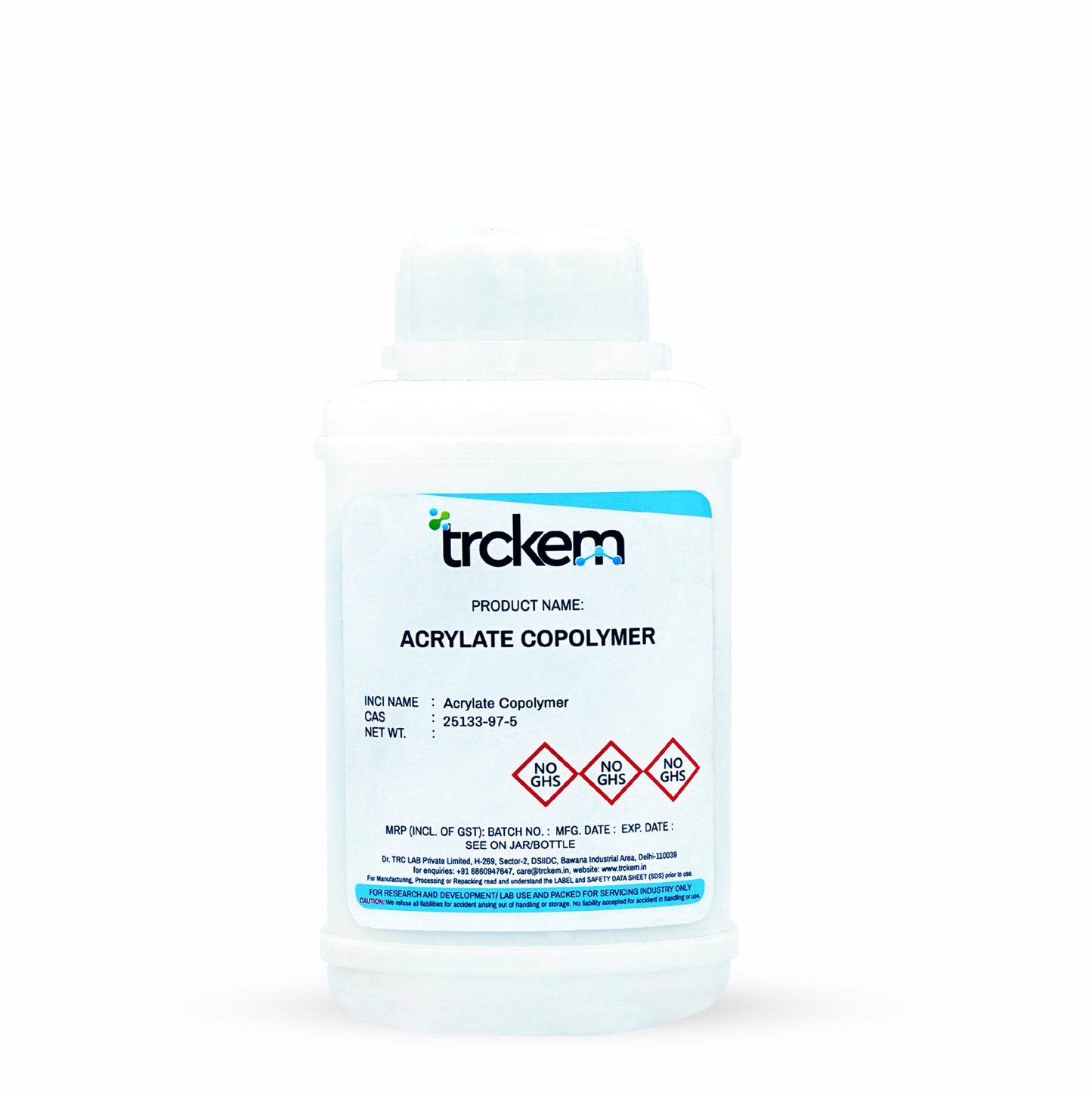
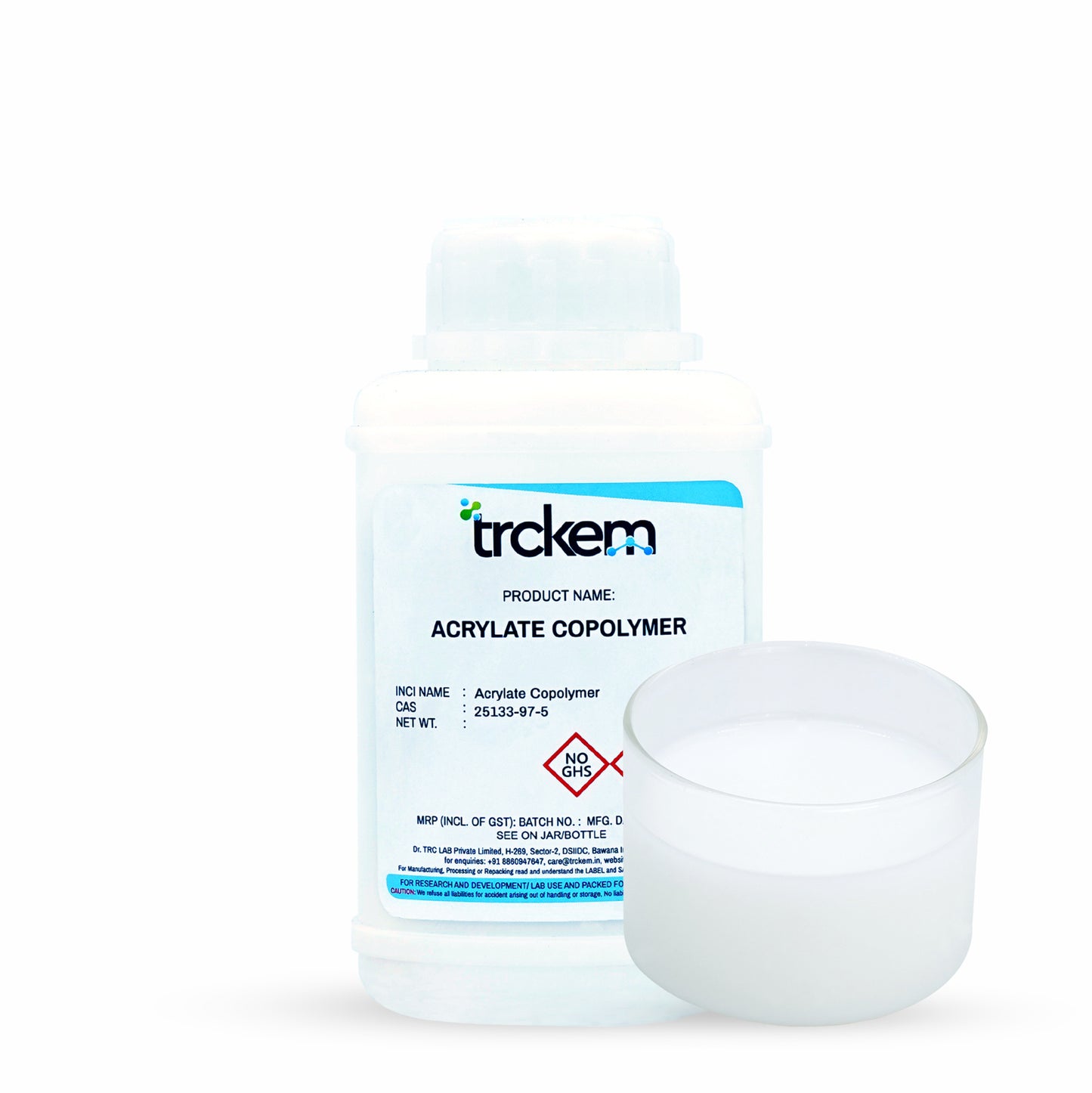
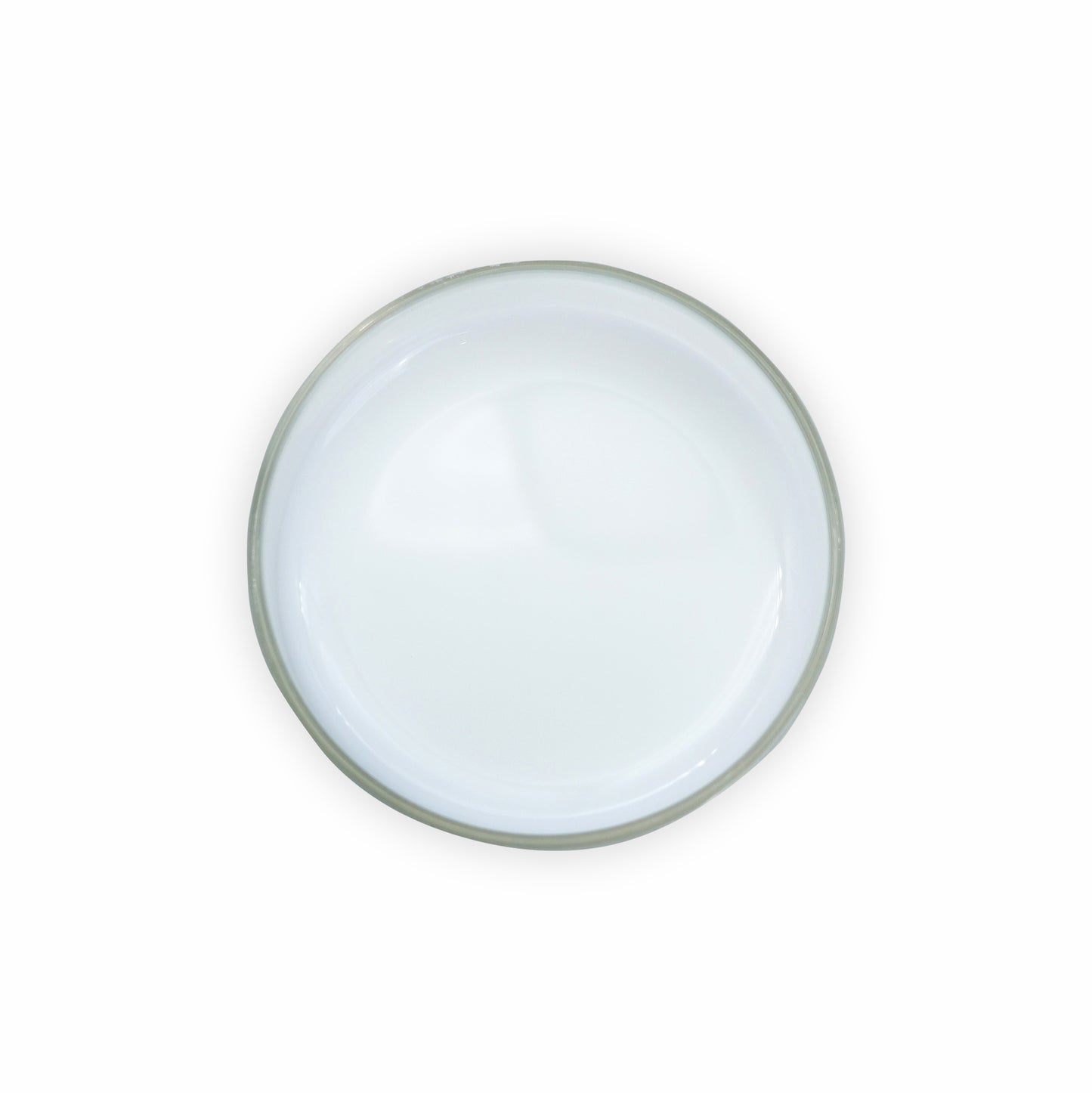
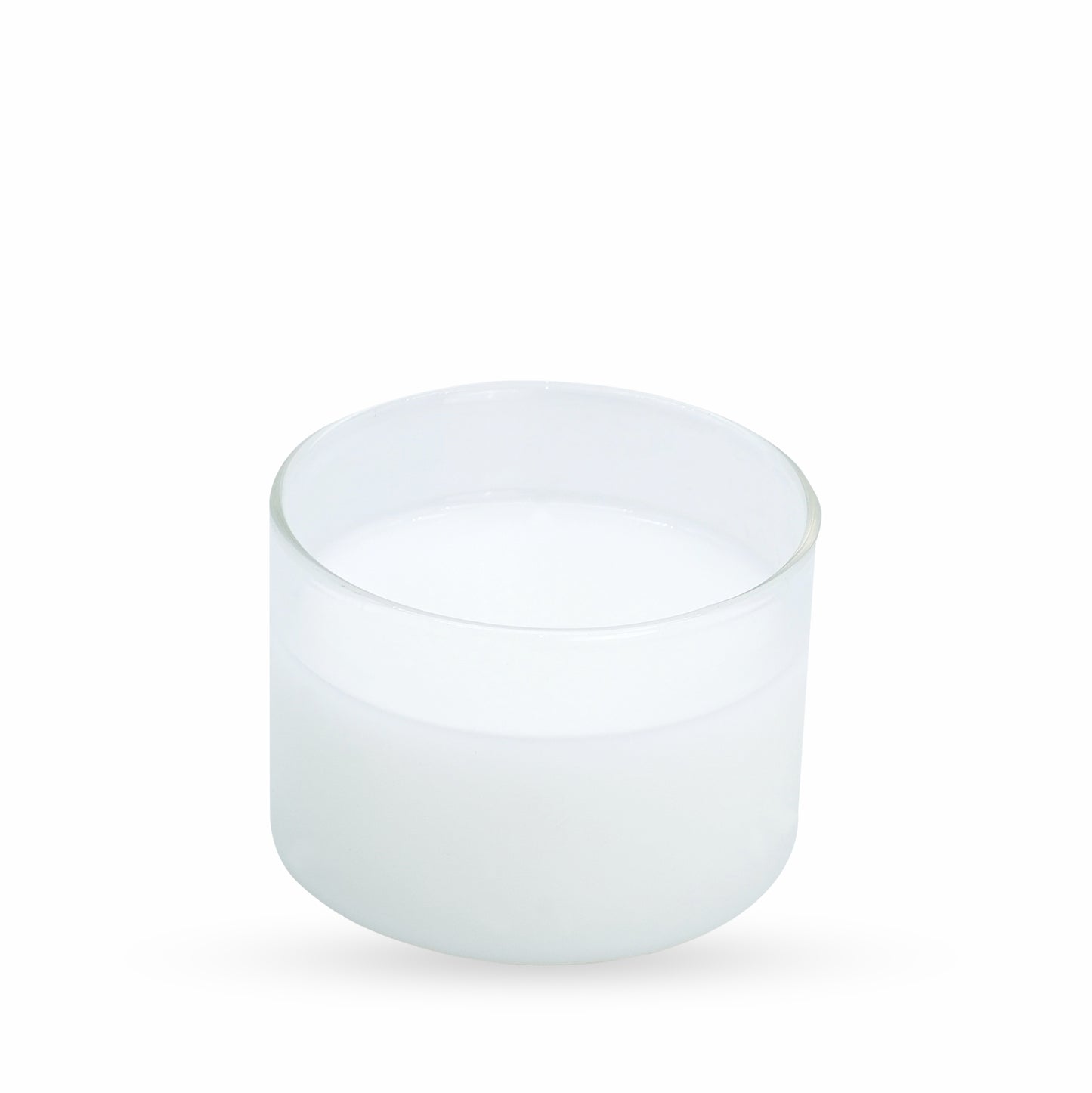
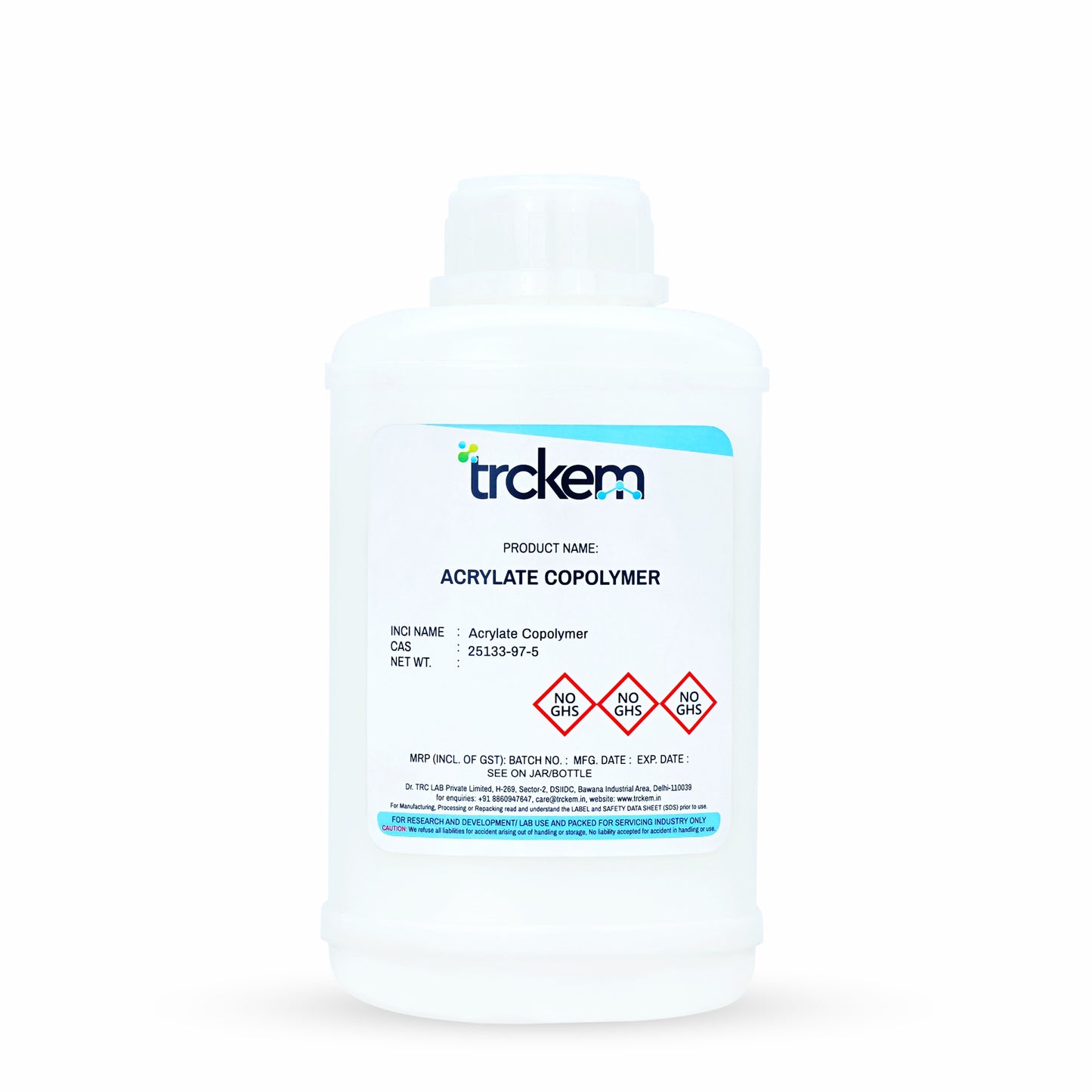
THE STORY OF ACRYLATE COPOLYMER

Acrylates Copolymer: The Invisible Film of Perfection
Acrylates Copolymer is a high-performance film-forming ingredient widely used in cosmetics for its superior adhesion, flexibility, and clarity. Known for creating a smooth, invisible layer on skin and hair, it enhances the texture and longevity of beauty formulations — from makeup to sunscreens and hair styling products.

Origin & Extraction
Developed through the controlled polymerization of acrylic monomers, Acrylates Copolymer represents a blend of science and stability. Produced under strict quality parameters, each polymer chain is designed for specific performance — whether for film formation, adhesion, or water resistance — ensuring consistency across every batch.

Cosmetic Role & Benefits
Acrylates Copolymer creates a breathable, flexible film that locks in active ingredients and improves wear time. In makeup, it prevents smudging and creasing; in sunscreens, it enhances water resistance; in hair products, it provides strong hold and humidity protection. Its transparent finish and smooth feel make it an essential for next-generation cosmetics.

Application & Safety
Acrylates Copolymer is safe and stable for use in skincare, color cosmetics, and haircare formulations. Recommended usage level: 0.5–10%, depending on system type. Non-irritating, non-sensitizing, and compliant with major cosmetic regulatory standards (EU, FDA, REACH). Store in a cool, dry place away from direct sunlight to maintain optimal performance.
Formulator’s Queries, We Answered
1. What is Acrylates Copolymer?
Acrylates Copolymer is a synthetic polymer composed of acrylic acid and its esters. In personal care products, it functions primarily as a film-forming agent, providing water resistance and enhancing the texture and stability of formulations.
2. What is the CAS Number and INCI Name of Acrylates Copolymer?
CAS Numbers: 25133-97-5
INCI Name: Acrylates Copolymer
3. What are the benefits of using Acrylates Copolymer in personal care products?
Film-Forming: Creates a flexible, continuous film on the skin or hair, enhancing product performance.
Water Resistance: Provides water-resistant properties, making it ideal for sunscreens and long-wear cosmetics.
Texture Enhancement: Improves the feel and spreadability of products.
Stabilization: Helps maintain the stability and consistency of emulsions.
4. What are the common applications of Acrylates Copolymer in personal care?
Sunscreens: Enhances water resistance and ensures even application.
Hair Styling Products: Provides hold and flexibility in gels and sprays.
Color Cosmetics: Improves wear time and texture in foundations, mascaras, and eyeliners.
Skincare Products: Stabilizes formulations and enhances sensory properties
5. Is Acrylates Copolymer safe for use in personal care products?
Yes, Acrylates Copolymer is generally considered safe for use in cosmetics and personal care products. It has been evaluated by regulatory bodies and is permitted for use within specified concentration limits.
6. Can Acrylates Copolymer cause skin irritation?
Acrylates Copolymer is typically non-irritating and suitable for most skin types. However, individuals with sensitive skin or allergies should perform a patch test before widespread use.
7. Is Acrylates Copolymer environmentally friendly?
Acrylates Copolymer is a synthetic polymer and may not be readily biodegradable. Its environmental impact is a subject of ongoing research, and efforts are being made to develop more sustainable alternatives.
8. Are there alternatives to Acrylates Copolymer in personal care products?
Yes, alternatives include:
Natural Film-Formers: Such as shellac and plant-derived gums.
Biodegradable Polymers: Like polylactic acid (PLA) and polyhydroxyalkanoates (PHA).
Other Synthetic Polymers: Such as Polyquaternium-7, which also provides film-forming properties.







